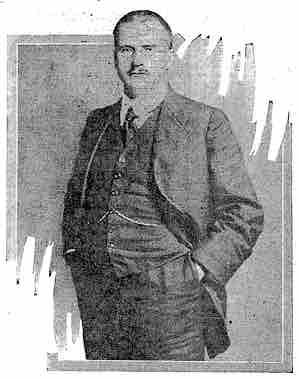Psychology of the Self
The psychology of the self is the study of the cognitive or affective representation of one's identity. In modern psychology, the earliest formulation of the self derived from the distinction between the self as "I," the subjective knower, and the self as "me," the object that is known. Put differently, let us say an individual wanted to think about their "self" as an analytic object. They might ask themselves the question, "what kind of person am I? " That person is still, in that moment, thinking from some perspective, which is also considered the "self. " Thus, in this case, the "self" is both what is doing the thinking, and also, at the same time, the object that is being thought about. It is from this dualism that the concept of the self initially emerged in modern psychology. Current psychological thought suggests that the self plays an integral part in human motivation, cognition, affect, and social identity.
The Kohut Self
Heinz Kohut, an American psychologist, theorized a bipolar self that was comprised of two systems of narcissistic perfection, one of which contained ambitions and the other of which contained ideals. Kohut called the pole of ambitions the narcissistic self (later called the grandiose self). He called the pole of ideals the idealized parental imago. According to Kohut, the two poles of the self represented natural progressions in the psychic life of infants and toddlers.
The Jungian Self
In Jungian theory, derived from the psychologist C.G. Jung , the Self is one of several archetypes. It signifies the coherent whole, unifying both the conscious and unconscious mind of a person. The Self, according to Jung, is the end product of individuation, which is defined as the process of integrating one's personality. For Jung, the Self could be symbolized by either the circle (especially when divided into four quadrants), the square, or the mandala. He also believed that the Self could be symbolically personified in the archetypes of the Wise Old Woman and Wise Old Man.

Carl Gustav Jung
According to Jung, the Self is one of several archetypes.
In contrast to earlier theorists, Jung believed that an individual's personality had a center. While he considered the ego to be the center of an individual's conscious identity, he considered the Self to be the center of an individual's total personality. This total personality included within it the ego, consciousness, and the unconscious mind. To Jung, the Self is both the whole and the center. While Jung perceived the ego to be a self-contained, off-centered, smaller circle contained within the whole, he believed that the Self was the greater circle. In addition to being the center of the psyche, Jung also believed the Self was autonomous, meaning that it exists outside of time and space. He also believed that the Self was the source of dreams, and that the Self would appear in dreams as an authority figure that could either perceive the future or guide an individual's present.